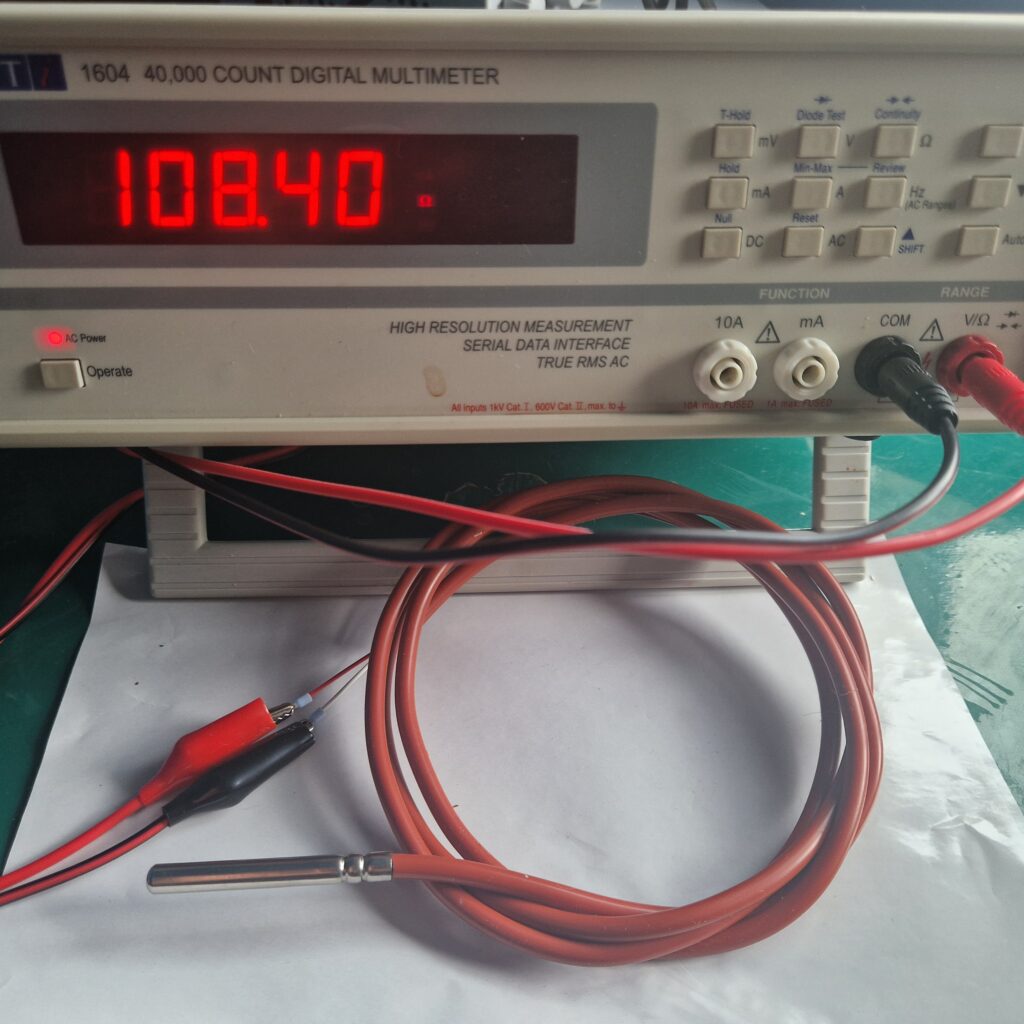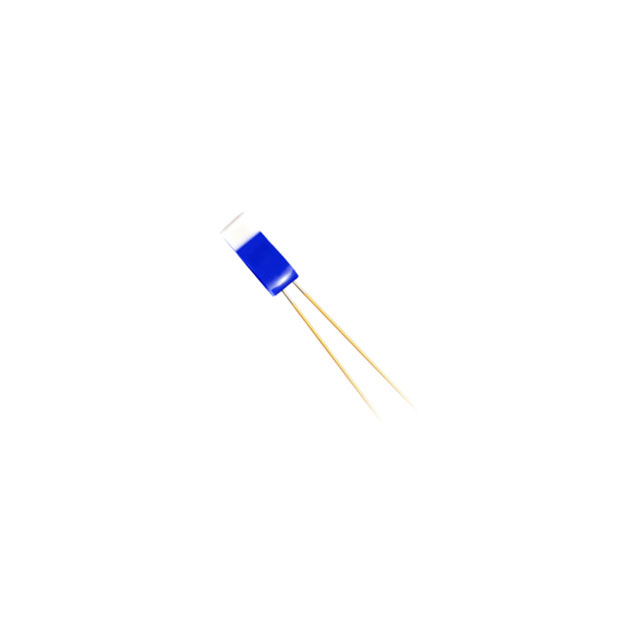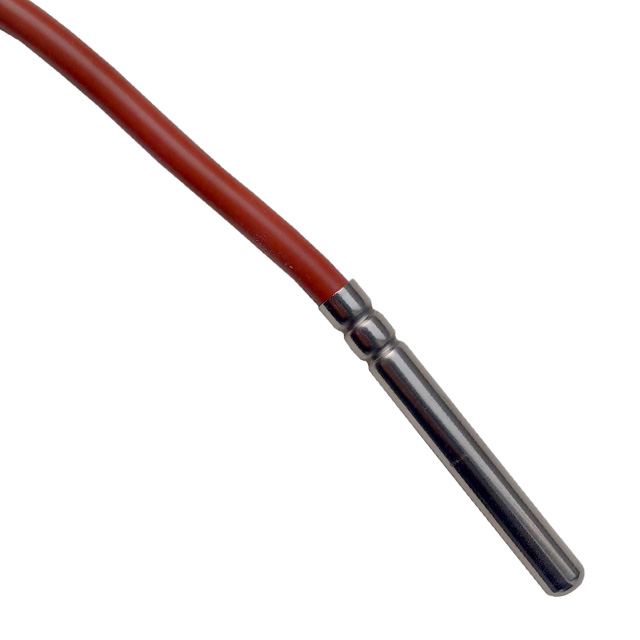PT100s are the most popular types of the platinum resistance temperature sensor elements. PT100 get their name from PT meaning platinum and 100 referring to the reference resistance ,meaning at 0°C the resistance is 100Ω.
How does the PT100 Temperature Sensor Work?
RTD PT100 Temperature sensors are made from platinum, this material accurately and predictably changes its electrical resistance with the temperature. The PT100 Resistance and Temperature are directly related to each other, meaning as the Temperature increases the Resistance will increase and as the Temperature decreases so doe the Resistance.
What is the PT100 Maximum Temperature Range?
- Typical Standard PT100s- Have a Maximum Temperature of 600°C
- Higher quality Industrial High Temperature PT100s- Have Temperature Range of 800°C
- Special high Temperature PT100 have a temperature Range of 1000°C
RTD Resistance to Temperature Calculator
RTD Resistance to Temperature Calculator
How to Test a PT100 with a Meter?
This is a common method to test if the PT100 works and to verify the resistance change with temperature change
- Disconnect the PT100 sensor or Probe
- Connect the Multimeter leads into the Resistance measuring configuration
- Set the meter to ohms – Auto scale or in the range of less than 1000
- Connect one probe to one leg/ wire and then connect the other probe to the other leg / wire
How to Test a PT100 Demonstration Picture

As demonstrated in the PT100 Probe testing image the Resistance Reads 108.4Ω
This 108.4 can be correlated to a temperature and using the PT100 Resistance to Temperature calculator 108.4Ω =21.56°C
RTD PT100 Sensor Probes and Elements Experts
We have expertise and experience with PT100 Sensors and Probes contact us with your requirements and we can despatch a PT100 the same day or design a new Probe for your application
Typical PT100 Circuits
PT100 or PT1000? Which is better
The choice between PT100 or a PT1000 depends on the electronics design, application and legacy installations.
The difference in reference resistance is demonstrated in the table below
| RTD Temperature Sensor | Resistance at 0°C |
| PT100 | 100Ω |
| PT1000 | 1000Ω |
Advantages of a PT1000 RTD sensor
- Can have longer wires compared to PT100 because the wire resistance is negligible when the sensor resistance is in the 1000s.
- Additionally low power and current consumption circuit benefit from a PT1000 because it uses less current and the supportive circuitry will also typically use less current.
- PT1000 can be easier to integrate and measure therefore higher resolution can be achieved
Advantages of the PT100 RTD Sensor
However PT100 are more established and industry known and have a wider availability. a lot of legacy hardware use PT100 and therefore if they need a replacement a PT100 sensor is needed.



